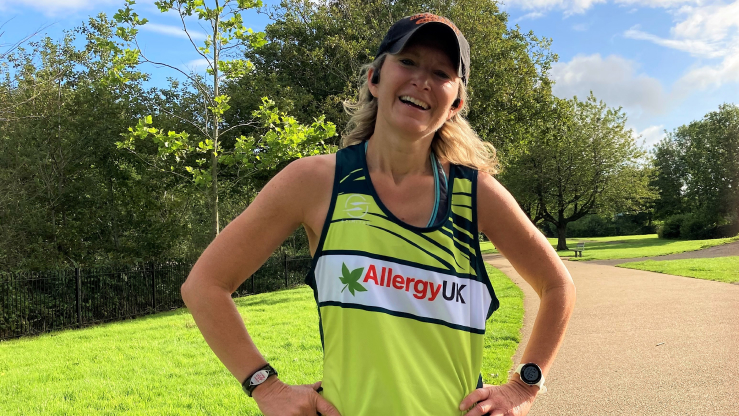95% of people living with food allergy would feel more confident eating out at a food outlet that was recognised by Allergy UK’s Allergy Aware Scheme. (Allergy UK, ‘Eating out with food allergy or intolerance’, 2016)
Before you make a reservation:
Call ahead:
Research the restaurant you are planning to visit, check out menu options online. Call the restaurant to prior, ideally a manager or head chef, asking about the meals that would be most suitable for your allergies. This is also an opportunity to ask about how the food is prepared, whether cross contamination with allergens is controlled and if all of their staff are allergy trained. We have an Allergy Aware Scheme for restaurants to put peace of mind on their menus. For more information click the link.
Cuisine:
Certain allergens are more likely in certain foods and/or cuisines. The restaurant may serve food that you may be able to eat, but cross contamination risks could be exceedingly high. For example, all seafood restaurants dishes are likely to be contaminated with fish and/or shellfish. In Asian cuisine there is likely to be an elevated risk if you have a nut allergy. Best to avoid buffets or salad bars due to shared utensils and potential for cross contamination between the dishes.
Recipes:
Its best to be cautious. Recipes at restaurants you may regularly visit can change at any time. Furthermore, even when a recipe proved safe at one restaurant does not guarantee it will be cooked the same way by a different chef at another restaurant.
Events:
If you are planning to attend a catered event, ask in advance if they can provide an allergy friendly menu option or if it would make you feel more confident you could ask if there is a possibility of bringing your own food.
Times:
Where possible, avoid eating out in a crowded restaurant. During busy periods, it’s more difficult to speak with the management or a chef. When the restaurant is busy, the chefs are more likely to make a mistake.
Prepare for emergencies:
Before you go, always know where your two Adrenaline Auto Injectors (AAI’s) are and remember to take them with you. It would be best if at least one person you are eating with is aware of your allergies, how best to support you and how to use your AAI.
When you arrive:
Talk to management:
Preferably, the manager or chef you previously spoke to on the phone will be there to talk to you when you arrive. If you didn’t have the time to call the restaurant beforehand, ask to speak with the manager or head chef straight away. Be open and honest, there’s nothing to be embarrassed about when explaining your allergy. Make absolutely sure with the employees that your food will not come into contact with an allergen in the kitchen that you are allergic to. Ask the chef to use clean pans, utensils, and fresh oil.
Translation cards:
If you are eating out abroad, translation cards are available from Allergy UK and will ensure others are made aware of your allergy despite any language barriers. For more information, click the link.
If you are not confident:
If at any time, when speaking to a member of staff about your allergy you are worried by their response or lack of understanding about allergies, it may be safer to leave or decide not to eat.
Placing your order:
Safest dishes:
Simple dishes like grilled or roast meat (served without marinades or sauces), steamed vegetables and potatoes, and fresh fruit for dessert are the safest options.
Wine:
If you or your table plans to order wine, make sure to double-check the label before diving in. To remove sediments from their wine, wine merchants utilise a clarification procedure called “fining”, which may include egg whites or casein (a milk protein). However, these must be mentioned on the label by law.
Send it back:
When your meal arrives, without diving in straight away be sure to check over it carefully to ensure that it is exactly what you ordered. Don’t be afraid to send it back. If you notice or smell an ingredient, you are allergic too, ensure to tell the staff that even if they just remove that ingredient off the plate, and returned the same plate, you could still have an allergic reaction.
Report a food problem
Caterers must provide clear and accurate information about the ingredients in the dishes they serve to their customers. If you believe that you have been served a dish containing an allergen, despite making your requirements clear, you should notify the local Trading Standards authority in which the food business is based.
Visit the FSA website to report a food problem
Allergy UK also want to hear about incidents like this, so email us at [email protected]

 Helpline
Helpline




